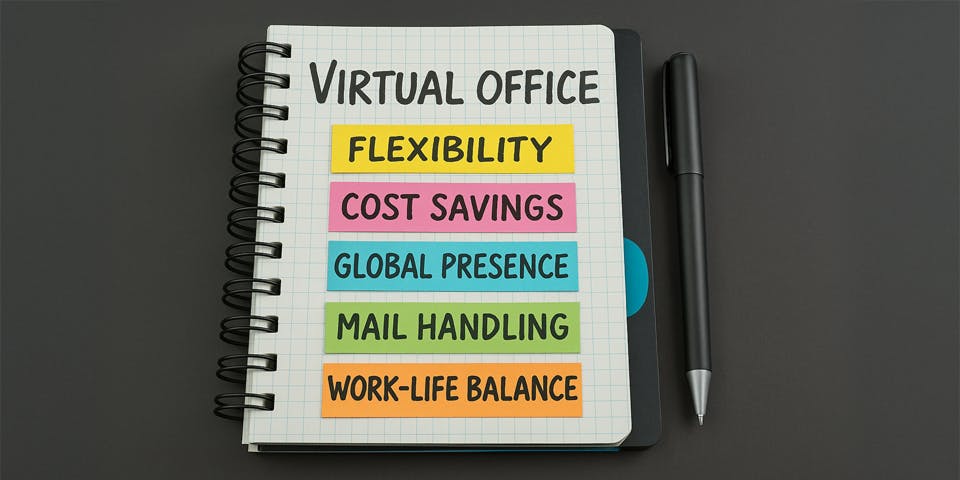20 September, 2022
How to Register a Company in the UK: Terms, Required Documents and Tips to Follow
Table of Contents
Registering a Company in The UK Without Breaking a Sweat
Do you want to start a business and wondering how to go about your company registration? Making sure that your business operates legally and that you don’t get any fines is highly important. There are various ways to set up your business and register a new UK company. Here we assess the pros and cons of each company type you can set up and give further advice on registering a company in the UK within these broad setup formats.
What do I need to know before I register my company?
When you initially form a company, you’ll need to decide whether to launch as a sole trader, register as a limited company, or register with an umbrella company. This step is essential, and finding the right format for your business will ensure you operate most efficiently while saving money on tax.
In the following sections, we’ll address each of the three main options, with additional notes on how/when to approach Companies House to set up a new business.
Sole trader
Setting up as a sole trader is a suitable option for people who want to be the exclusive owner of their business, as this entitles them to all profits after tax. Typically, freelancers and contractors will be set up as sole traders.
Among the benefits of registering a sole trader, business is that it’s easy to set up initially with Companies House and HMRC since paperwork is minimal. There’s also the fact that it’s much easier to change your mind if you decide to go back into full-time employment later.
However, sole traders don’t get as much tax relief as a limited company, and there’s also less access to finance should you need to take out a business loan. Additionally, sole traders don’t have the same level of protection as a limited company—therefore, if the business gets into debt, so will you.
How to register
If you want to register a new company in the UK as a sole trader, you’ll find the process to be extremely easy. You will need to register for Self Assessment and file a tax return annually. Registering for VAT is also required if your turnover is over £85,000 (you may also register voluntarily). If you’re setting up your business from overseas and plan to move to the UK, you must also apply for a National Insurance number.
You can trade under your own name or choose something different. The trading/business name itself will not need to be registered with Companies House, giving you a bit more flexibility in terms of what name to pick. However, trademark rules do still apply, so be sure to check the Trademark Register before finalising your decision.
Limited company
Ltd company formation is suitable for businesses with at least one employee or contractors and freelancers earning over £30,000 per annum. This is chiefly because there are tax savings to be made by registering as a limited company.
Freelancers earning below that may also consider it an option to make an Ltd company. However, to register this way, you will have to deal with more paperwork, and there are some additional rules and guidelines to bear in mind when setting up. If you’re unsure whether this is the right move, get advice from your accountant.
One of the main benefits of going limited is being able to separate yourself from your business, giving you limited liability should things go wrong. For first-time entrepreneurs going after major contracts, this is invaluable protection for you and your money.
How to register
To set up a limited company, you must apply directly with Companies House or use a company formation service. Company formation services are beneficial because you can usually get some great deals. Our company formation partner, Crunch, offers its services for just £10—and better yet, we can even give you £10 back in credit if you make a virtual office plan with us.
Forming your company is a lengthy process, and you’ll need to have all the necessary information at hand. Check out our separate post on becoming an Ltd company in the UK.
Umbrella company
Registering with an umbrella company means that another business will be acting as an employer for you, who becomes the contractor. This registration type will typically be done for a fee and a fixed term. Potential benefits of setting up this way include greater all-around flexibility and easier access to guidance and advice as a new entrepreneur.
Registering with an umbrella organisation in this way saves you the trouble of setting up formally as your own limited company. For contractors unfamiliar with working for themselves (or who make less than £30,000 per annum), it allows you to dip your toes in the water to see if self-employment is likely to work for you longer-term.
It also frees you from several common business-running responsibilities such as VAT returns, company accounts, payroll, commercial software licensing, and others. It can also benefit short-term contractors who want to avoid the effort involved in limited company formation, knowing they’ll likely want to dissolve it later.
How to register
This is the easiest way to register a new company in the UK because you don’t actually have to form the company yourself first. Instead, you pick an umbrella company and contact them to register as one of their associated contractors.
Once approved, you’ll inform your agency or end clients, check and sign the contract, send over your bank details for receiving payments, and start contracting. You’ll be trading under the umbrella company’s name, so choosing and registering your own brand name won’t be necessary.
Contact Our Team Today to Easily Start Your Company!
General Steps to Register a UK Company
Understanding how to register a company can be pretty challenging, as you need to know the exact regulations to do everything correctly. Here we provide general steps to create a company in the UK.
Select a Structure
The first step in creating a company is to decide what structure is appropriate for your business. The most common structure in the UK is a public limited company, and there are several benefits that it offers.
This structure allows you to manage your tax effectively. As a director of this company, you can pay less in income tax because you can take some of the income from the dividends. An additional advantage of the limited liability structure is that you don’t risk your personal belongings if your company has financial problems.
Choose a Company Name
Another step that cannot be underestimated is choosing a name for your new company. When registering a company, you should first check if someone hasn't taken the name.
Choosing a name that reflects your company's philosophy and has meaning behind it is a good idea. You should avoid selecting a name that will be too difficult to pronounce or spell, as this will only frustrate your potential customers. Look up the names of other companies in your field to get some ideas and ensure that you stand out.
Consider an Easy Formation Process
The process can be pretty nerve-racking when it is your first time creating a company. At The Hoxton Mix, we offer you to register a new company quickly and without any stress. We have teamed up with Crunch, so you can have your new company by spending only £10. This is the easiest way to start a company!
Provide the Company Information
When you create a company, you need to provide some basic information to Companies House, such as:
Your company’s address
It will be used to send you mail from Companies House. The address should be in the UK, and the authorities need to be able to reach you at this location.
Director’s information
There must be at least one director in a company, and you need to provide their name, personal address, and date of birth.
Shareholder’s information
Similar to a director, there should be at least one shareholder. Note that a company’s director can also be a shareholder. You must provide a shareholder’s name, personal address, and date of birth.
Allocate Your Shares
Registering a new company requires you to allocate shares. You can do this easily by assigning a single share to each person and making this share cost £1.
Sign and Submit the Documents
You should sign the Articles of Association and the Memorandum to complete the registration process. These documents have to be signed by the company’s secretary, shareholders, and directors. You should then submit the documents to Companies House.
How long does it take to register a company in the UK? If the application is completed before 3 PM, it will be registered on the same day.
Documents Required to Register a Company in the UK
While registering a company in the UK is not too difficult, this process requires much preparation. You can download the IN01 Form, Memorandum, and Articles of Association from the official Companies House site.
IN01 FORM
The form is used by Companies House to register companies. In this form, you need to provide basic company information (its structure, name, address) and information on its director, shareholder, and secretary (date of birth, name, residential address).
Articles of Association
All directors and shareholders that register a UK company must sign the Articles of Association document. This document states your company's rules, legal responsibilities, and the roles of all members. It's also possible to provide your own company rules in addition to the standard ones.
Memorandum of Association
In addition to the company’s name and registered office address, this document includes a statement regarding the liabilities of the company’s members and information on the share capital.
Looking for financial support to grow your small business?
Government grants can be a game-changer, providing the funding you need to take your venture to the next level. Whether you're starting a new business or looking to expand an existing one, understanding the ins and outs of government grants is essential. That's why we've compiled a comprehensive guide on everything you need about government grants for small businesses. From eligibility criteria to application tips, our blog post covers it all. Check it out here: Government Grants for Small Businesses: Everything You Need to Know.
Explore the benefits and challenges of private limited companies in this informative piece by Hoxton Mix, perfect for entrepreneurs making key decisions.
How Hoxton Mix Can Help You
There is no denying that when you decide to register a company in England, the process can quickly become overwhelming and confusing. You need to gather all the information, fill out the application, and come up with the company’s name and rules.
So, what is the best way to register a company UK? Here at The Hoxton Mix, we can help you get your company up and running in no time. All you should do is provide us with the basic information, and we will handle all the rest. In addition to the company formation services, we offer you an opportunity to create a virtual office for easy mail redirection and other benefits. We have made the process easy for numerous clients, and we can help you avoid stress and save time.
Contact our team, and we will help you make the first steps in your new business!
FAQ
At what point do I have to register a business?
You should register your business with a government agency before you start selling any products or providing services in the UK.
Do I need to register my small business UK?
Yes. If you don't create a limited company, you are considered a sole trader and must inform HMRC that you are conducting business activity. Otherwise, you will have to pay fines for not registering in the stated terms.
How do I register a company in the UK?
To register a company, you should provide all the applicable documents to Companies House. If you want to make this process quicker, you can pick your package for company formation with The Hoxton Mix.
What happens if you don't register your business?
If you don’t declare your income and register your business, you will face significant fines from HMRC. In the case of serious tax evasion, this can even lead to prosecution.
Hand-picked related articles

London
Virtual Office
Mail Management






